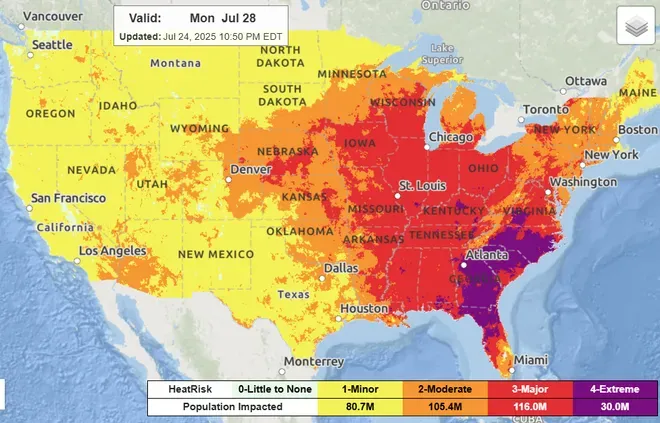Dangerous heat lingers in Kentuckiana, experts warn this isn't normal





"I'm Shay McAlister, and this is Shay Informed: an independent, ad-free platform dedicated to honest journalism with compassion and clarity.
Are you new here? Sign up for the free newsletter or subscribe to support our mission.
The National Weather Service (NWS) is warning Kentuckiana could experience heat index values as high as 108 degrees this week, as a dangerous combination of high temperatures and high humidity lingers over much of the eastern United States.
The NWS forecast suggests the heat wave could break Wednesday night, with thunderstorms moving in for the second half of the week, bringing much needed relief after several weeks of uncomfortable outdoor conditions.

It is summer in Kentucky, so yes, heat is expected. But according to a climate researcher who spoke to USA Today, "it's happening a lot more, with greater intensity, greater duration and greater frequency."
Max Holmes, president and CEO of the Woodwell Climate Research Center, told USA Today heat is only one impact of a warming planet. Extreme rain leading to deadly flash floods is another extreme caused by a warmer earth.
Kerr County, TX, was the most recent scene of a horrific flash flood, when at least 108 people were killed, including 37 children. State-wide the death rate is now at 135.
It was just three years ago Kentucky was home to a similar disaster. Raging floodwaters in eastern Kentucky in July of 2022 led to 45 deaths, thousands of homes and buildings destroyed and a infrastructure nightmare.
Dangerous heat and flash floods are two weather extremes Holmes suggests we will see more of. "As the earth gets warmer, we see more extremes and it's the extremes that get us. They kill us. They make us sick," he told USA Today.
Like what you see? Subscribe now to support Shay Informed- honest journalist with compassion and clarity.